
Whaam! Whaam! by Roy Lichtenstein (1963). Tate Modern. Ban… Flickr
Roy Lichtenstein, quoted in John Coplans, "Interview: Roy Lichtenstein" (1970), in Roy Lichtenstein, ed. Graham Bader, 36. Wikipedia entry.. His paintings were exhibited at the Leo Castelli Gallery in New York City. Whaam!, Drowning Girl, and Look Mickey proved to be his most influential works. His most expensive piece is Masterpiece.
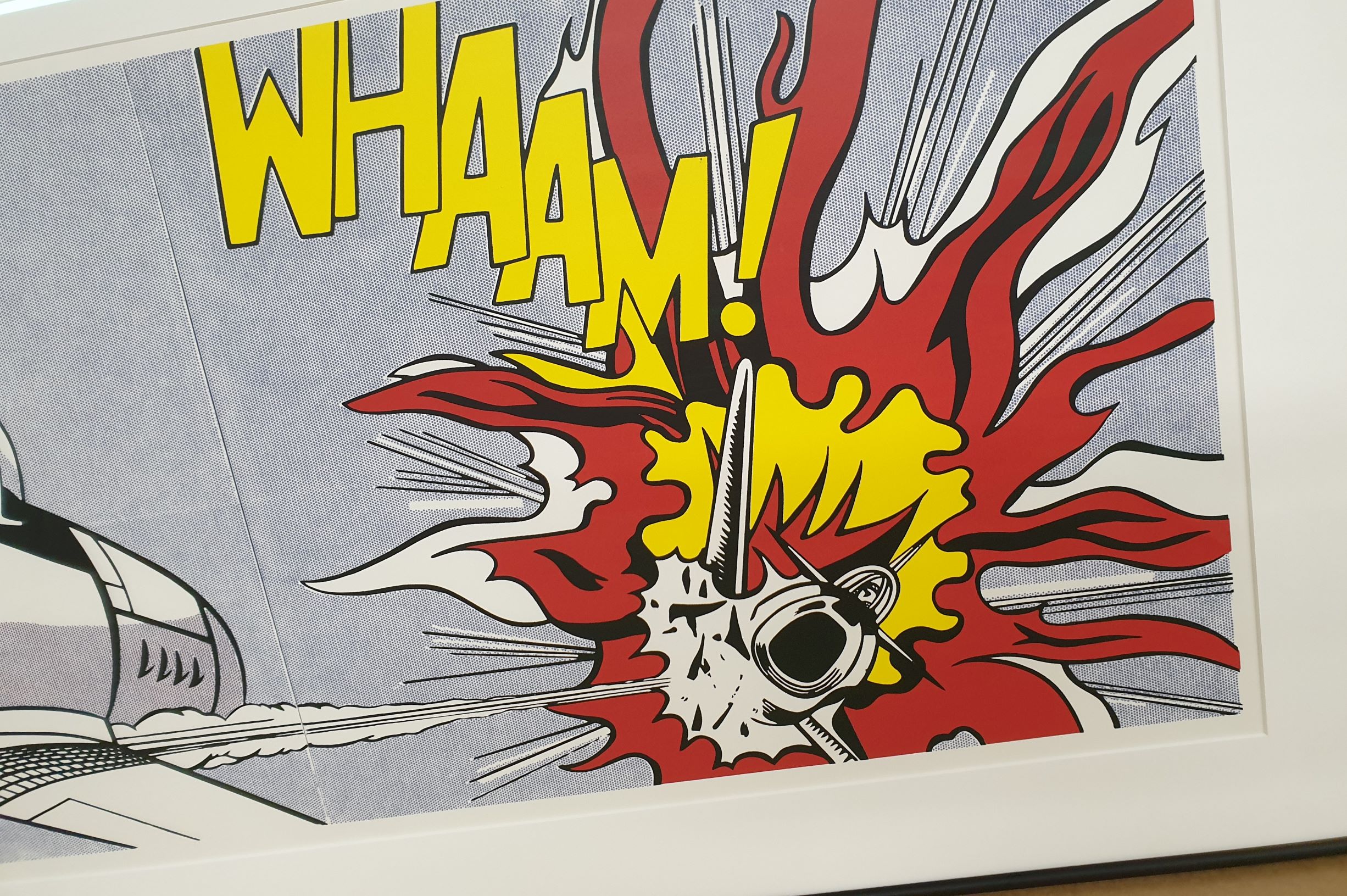
Roy Lichtenstein ‘Whaam!’ Print Bespoke Framing
Roy Lichtenstein and the Art of Appropriation, which shows that the original comic artists had lived austere and even destitute lives. While Lichtenstein's paintings sold for tens of millions.
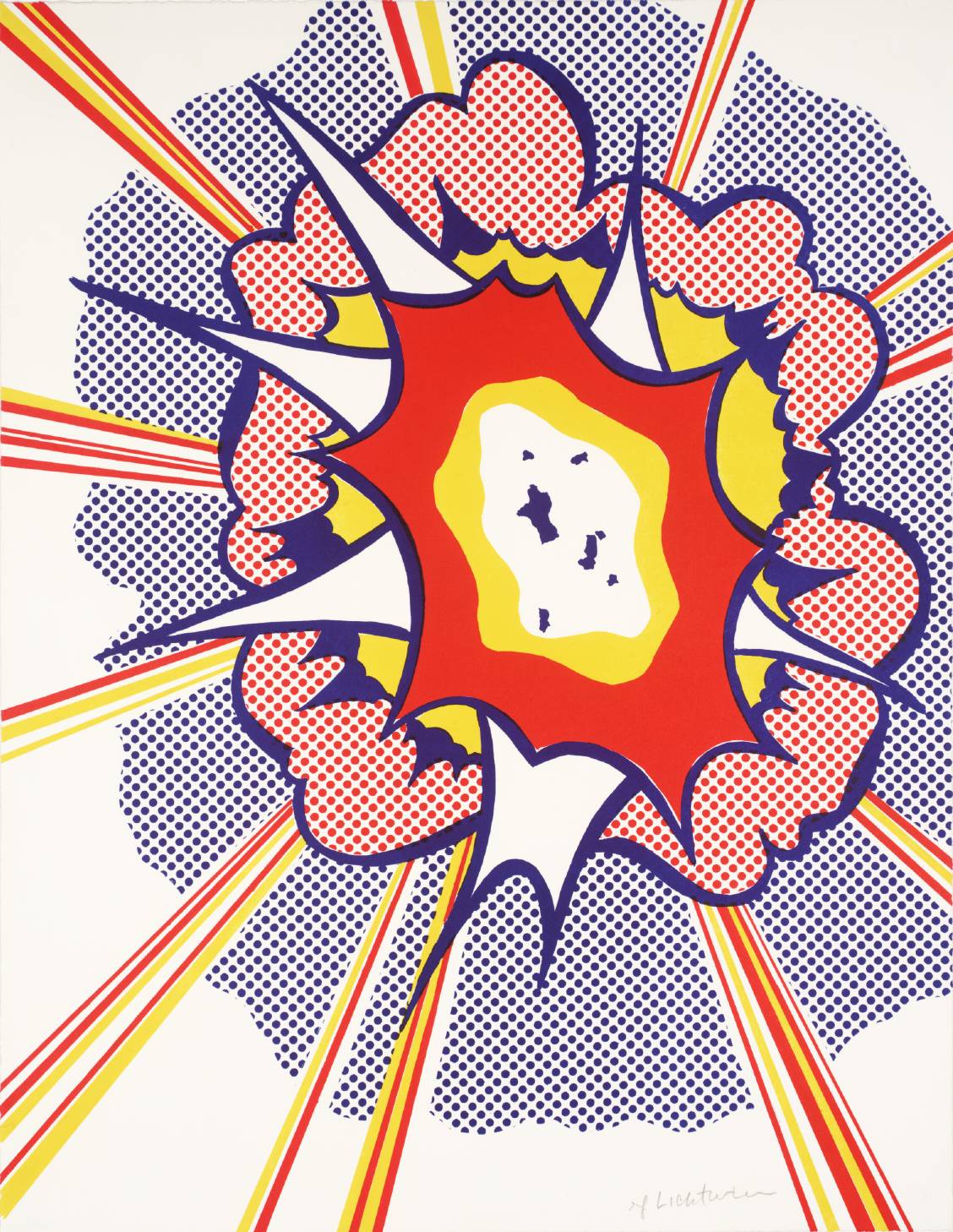
MISS ETOILES WHAAM!!!! Roy Lichtenstein landed at Tate Modern
Roy Lichtenstein's Whaam! (1963) is an iconic artwork in Tate's collection (T00897). Over the past 50 years, the painting has been on almost continuous display and had accrued a layer of deposited soiling, which resulted in the dampening of Lichtenstein's vibrant colours and the masking of numerous subtleties across the painting surface.
/lichtenstein-2635596-5b10547731283400367c2b47.jpg)
Life and Work of Roy Lichtenstein, Pop Art Pioneer
Whaam! is a 1963 diptych painting by the American artist Roy Lichtenstein. It is one of the best-known works of pop art, and among Lichtenstein's most important paintings. [1] Whaam! was first exhibited at the Leo Castelli Gallery in New York City in 1963, and purchased by the Tate Gallery, London, in 1966.

RoyLichtensteinWhaamart Canvas Prints Australia
Roy Fox Lichtenstein [2] ( / ˈlɪktənˌstaɪn /; October 27, 1923 - September 29, 1997) was an American pop artist. During the 1960s, along with Andy Warhol, Jasper Johns, and James Rosenquist, he became a leading figure in the new art movement. His work defined the premise of pop art through parody. [3]

One Dot At A Time, Lichtenstein Made Art Pop NPR
Was Roy Lichtenstein an Appropriation Artist or Plagiarist? A New Documentary Probes the Ethics of His Multimillion-Dollar Comic Art Empire The film features comic artists whose work has been source material for the Pop artist. Min Chen, March 13, 2023 Poster for WHAAM! BLAM! Roy Lichtenstein and the Art of Appropriation.
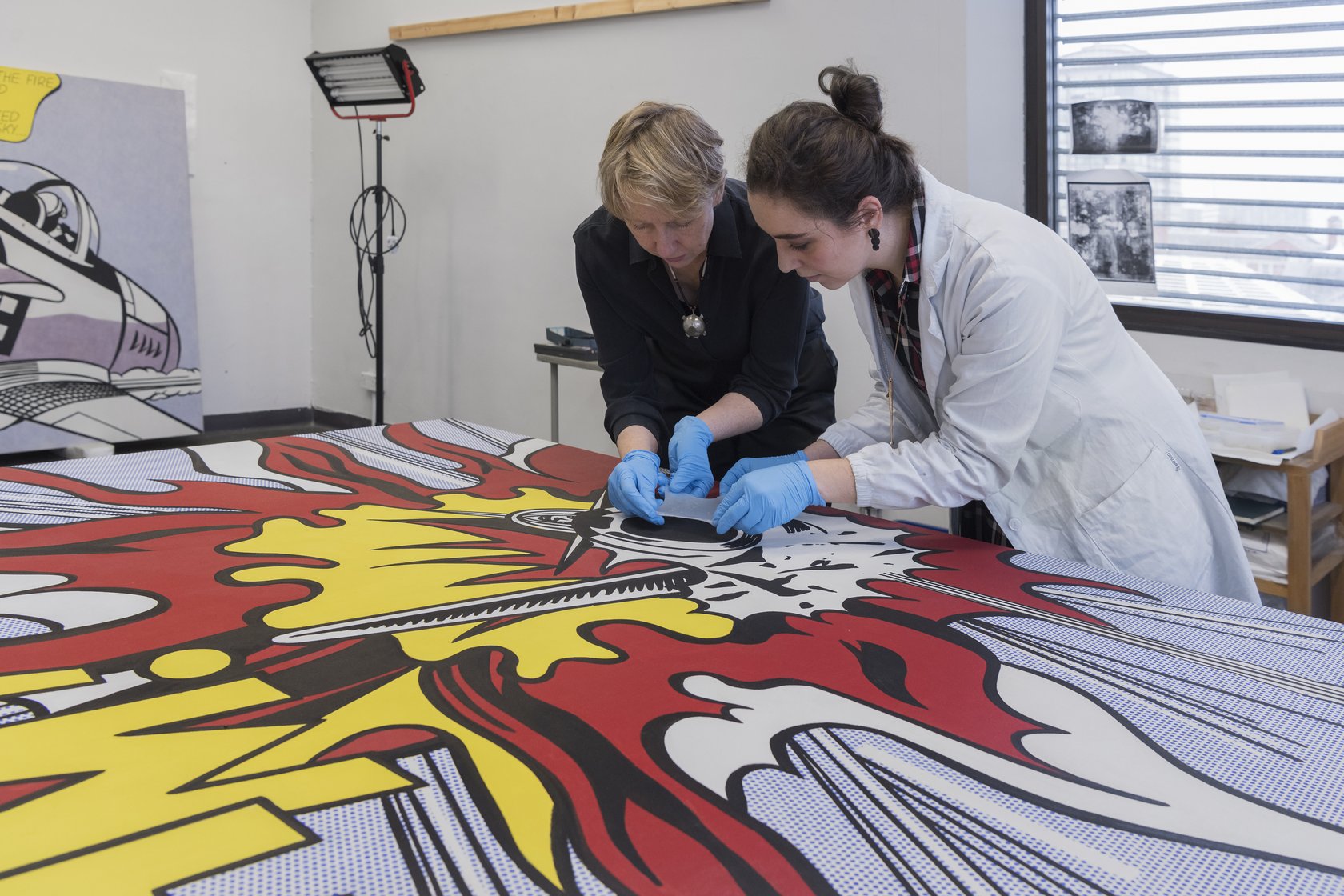
‘Whaam!’, Roy Lichtenstein, 1963 Tate
Whaam! by Roy Lichtenstein. Whaam! is based on an image from 'All American Men of War' published by DC comics in 1962. Throughout the 1960s, Lichtenstein frequently drew on commercial art sources such as comic images or advertisements, attracted by the way highly emotional subject matter could be depicted using detached techniques. Transferring.
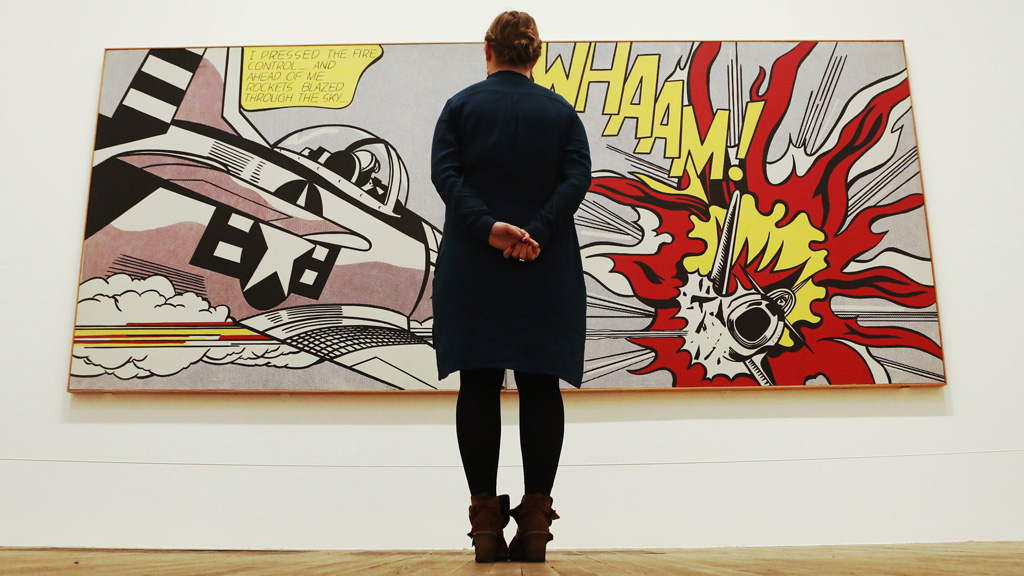
Whaam! Roy Lichtenstein the art and the artist Channel 4 News
Lichtenstein's best-known work from this period is "Whaam!," which he painted in 1963, using a comic book panel from a 1962 issue of DC Comics' All-American Men of War as his inspiration. Other.
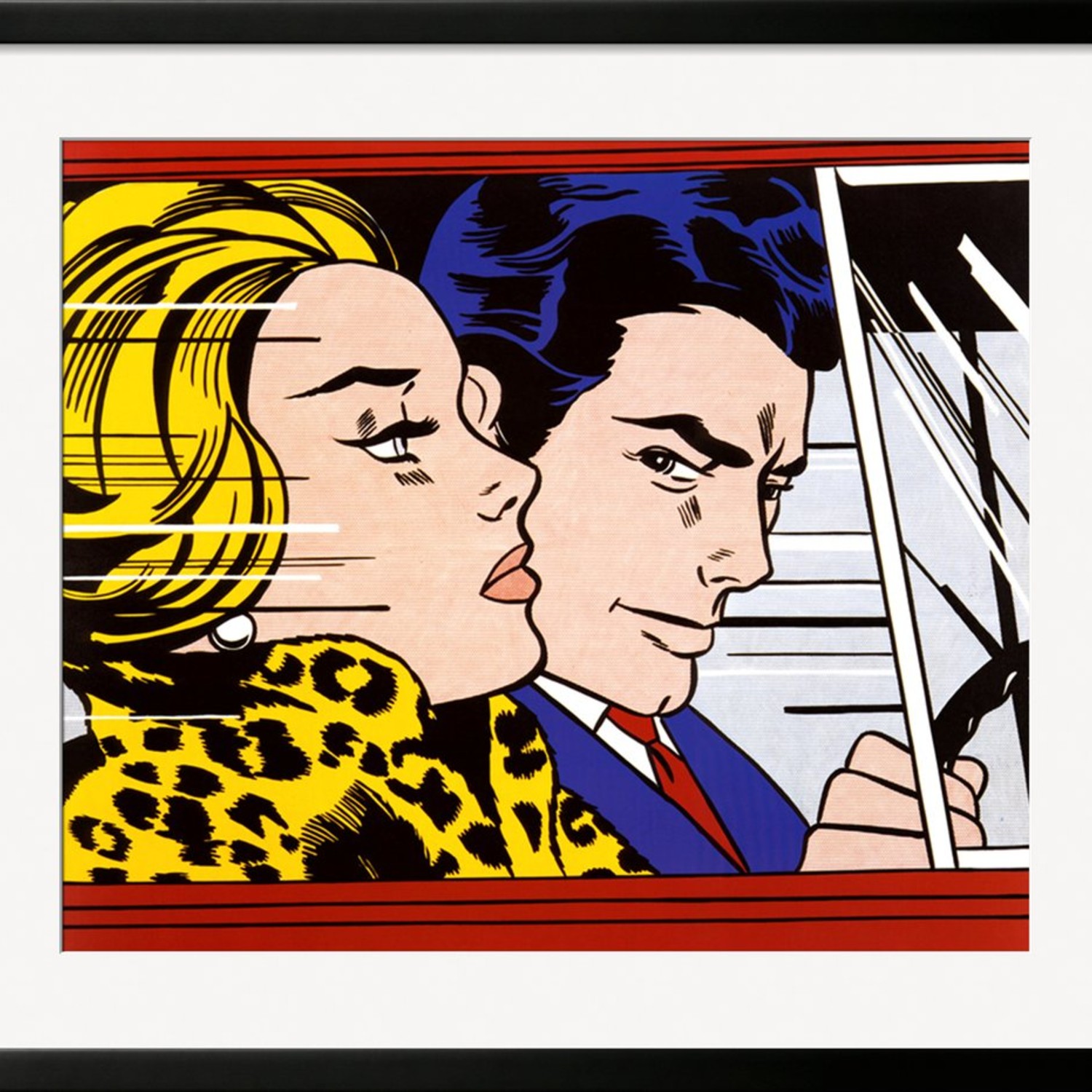
Whaam! // Panel 2 of 2 Roy Lichtenstein Touch of Modern
by acornell on January 22, 2015 under Uncategorized ∞ Permalink Whaam! 1963 Whaam! is a 1963 diptych painting by the American artist Roy Lichtenstein. It is one of the best-known works of pop art, and among Lichtenstein's most important paintings. Whaam! was first exhibited at the Leo Castelli Gallery in New York City in 1963.

roy lichtenstein whaam Google Search Pop Art Lichtenstein Pinterest Roy lichtenstein
Along with Warhol, Lichtenstein created the Pop Art movement of the 1960s. His comic-based paintings reside in the greatest art galleries and can fetch more than $150 million, but some view this.

How Lichtenstein's "Whaam!" Became a Monumental Symbol of Pop Art The Most Famous Artworks in
Whaam! 1963 is a large, two-canvas painting by the American pop artist Roy Lichtenstein that takes its composition from a comic book strip.
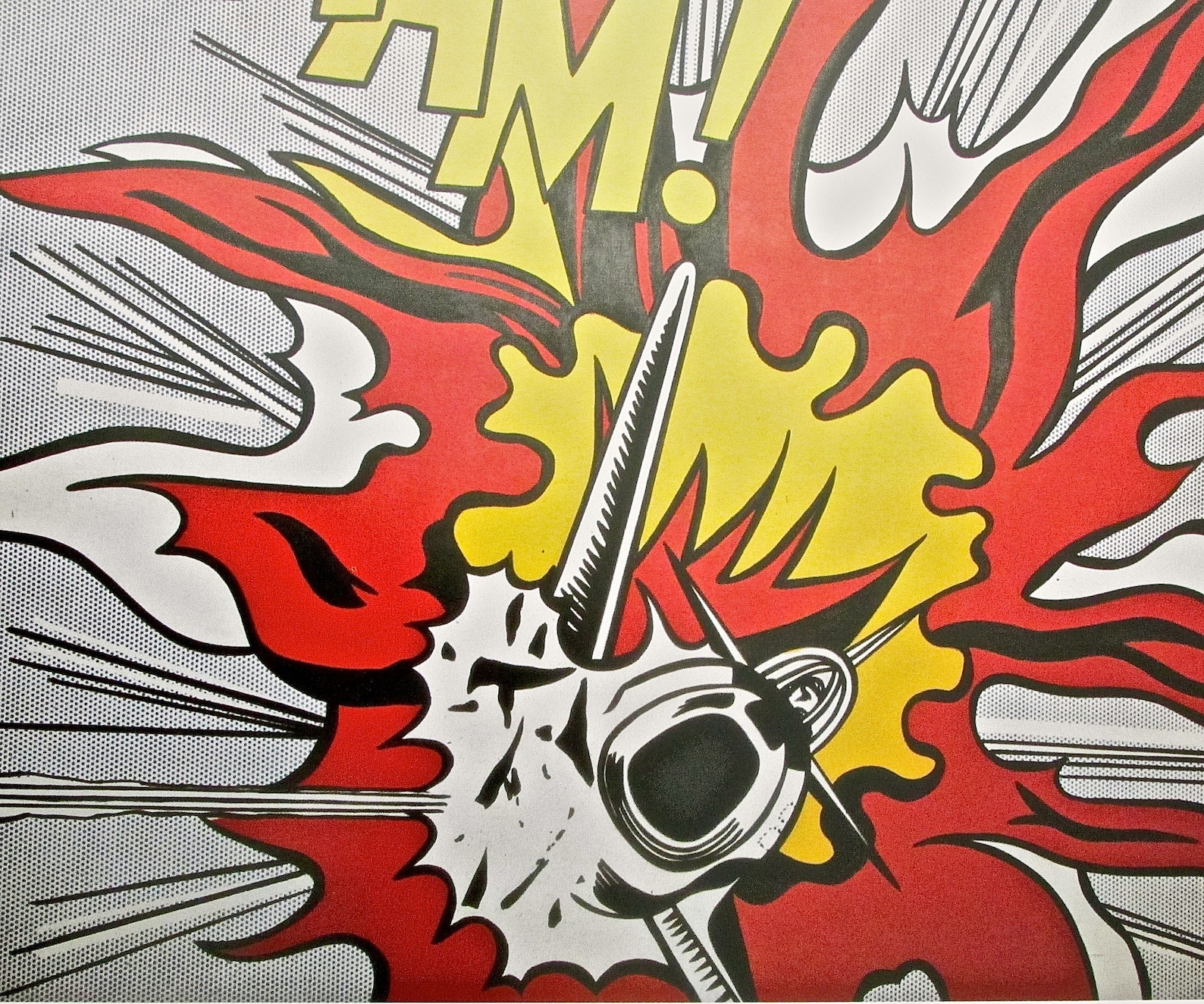
Roy Lichtenstein Whaam 1963 Poster 17x12 Photogravure Etsy
Whaam! (1963) is a two-canvas painting based on an image from the comic book strip All-American Men of War, published by DC Comics in February 1962. The left canvas depicts an American fighter plane firing a missile that hits an approaching enemy plane seen on the right canvas.

Roy Lichtenstein vs Walter Benjamin
Roy Lichtenstein's serious comic-inspired canvas Whaam! disrupted the art world in the mid-1960s, delivering an enigmatic salvo at both the conventions of artistic expression and the post-war representation of conflict. By reworking a comic book image of an American jet destroying an enemy plane, Lichtenstein blows up audience expectations.
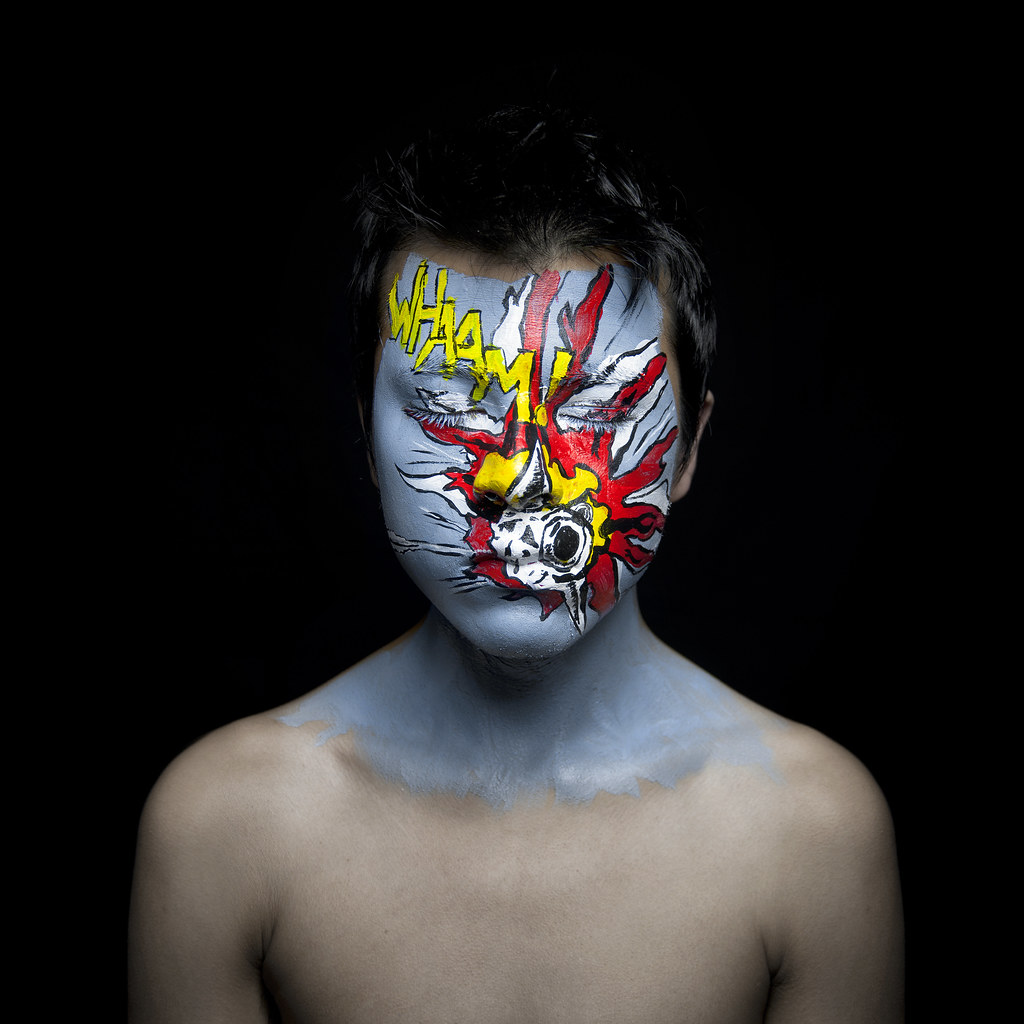
Whaam!, Roy Lichtenstein (1963) So heres the Making of 'Wh… Flickr
The stuff of war flashbacks and conflict news coverage. But by Lichtenstein, we are drawn into the work and its detachment from reality, by the aesthetic suggestion of childhood and by the absurdity of an oversized comic strip hanging in the art gallery. First exhibited in New York in 1963, Whaam!

How Lichtenstein's "Whaam!" Became a Monumental Symbol of Pop Art The Most Famous Artworks in
Whaam! by Roy Lichtenstein was inspired by the DC Comics' story titled Star Jockey, which was in issue number 89 from the series titled All American Men of War (1962). The image that Lichtenstein reproduced was initially done by the artist Irv Novick.
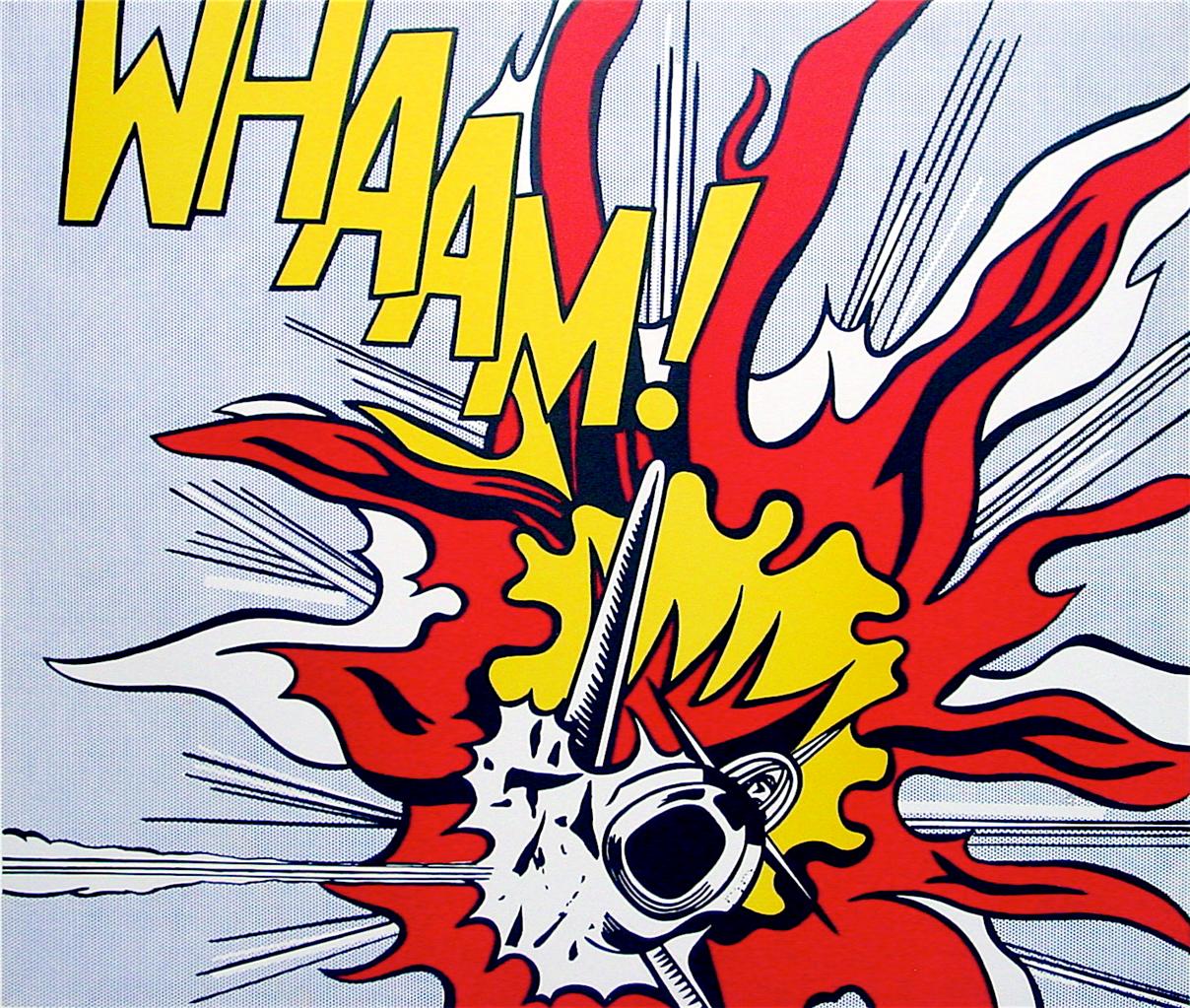
Roy Lichtenstein Whaam 1986 Tate Gallery Edition Print 682 3000 eBay
Whaam! is a 1963 diptych painting by the American artist Roy Lichtenstein. It is one of the best-known works of pop art, and among Lichtenstein's most important paintings. Whaam! was first exhibited at the Leo Castelli Gallery in New York City in 1963, and purchased by the Tate Gallery, London, in 1966.